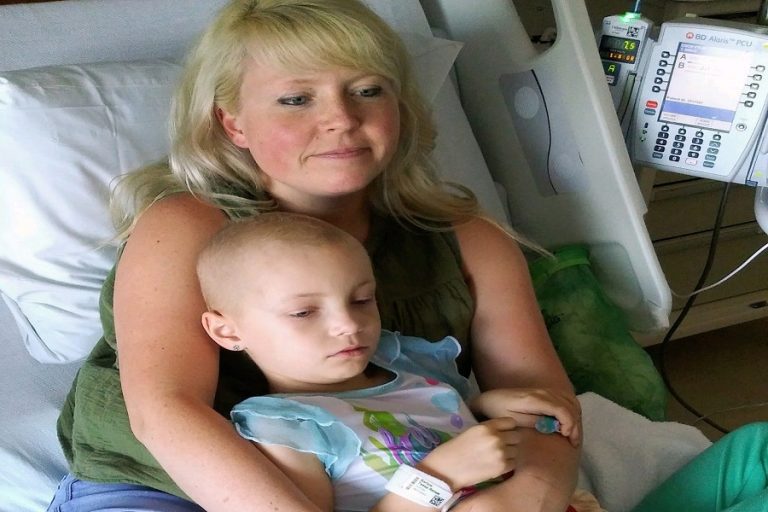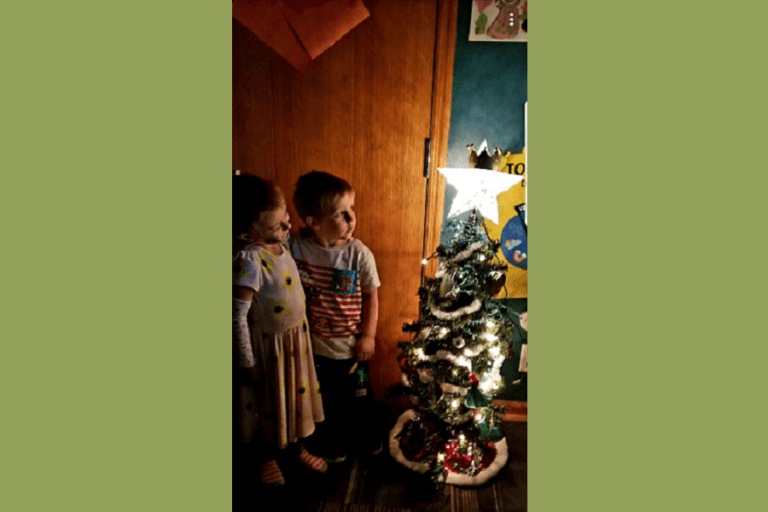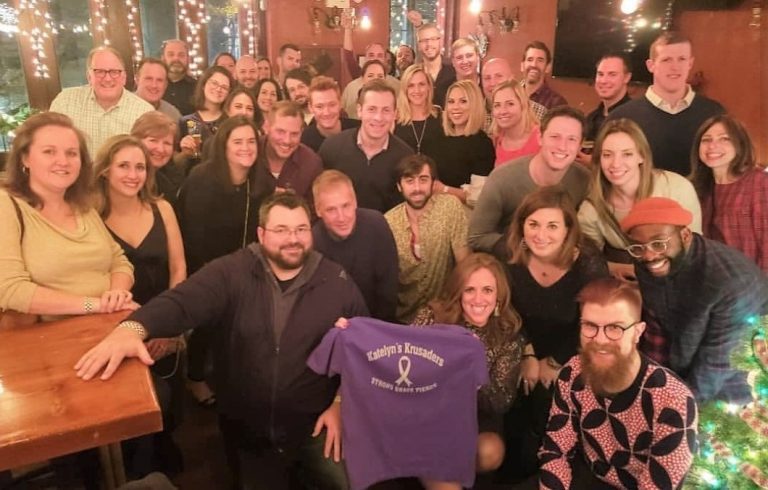In 2006, when Owen developed an ear infection and a cough at 11 months old, everyone thought a trip to Urgent Care for an antibiotic was all he needed. It helped for a while, but soon his symptoms were back. And this time, Owen was pale.
Not satisfied with the new diagnosis of a virus, Bonnie took him to his regular pediatrician who ran some blood tests and arranged for Owen to be admitted to the hospital. Not tomorrow. Right now. He was admitted, and “within three hours, my husband Brian and I were informed there was an 80 percent chance Owen had leukemia,” says Bonnie.
The news threw her into a panic mode. “I felt like a semi had hit me in the stomach,” she says. “Our world was turned upside down.” Bonnie was so shaken that she had to be wheeled to Owen’s room in a wheelchair. Her first question was to a nurse. “Do any kids survive this?” she asked. “Oh yes,” replied the nurse, who introduced her to a fellow nurse who was a leukemia survivor. It gave Bonnie hope.
The very next day, Owen was diagnosed with acute myeloid leukemia (AML) and an abnormality on his MLL gene, commonly seen in infants with leukemia. “You never think something like this will happen to your child,” says Bonnie. But it did, and now the fight began. While older children who are diagnosed with leukemia have an 80 percent survival rate, infants struggle to reach 50 percent survival. That’s because infant leukemia is very different from other childhood leukemias, both biologically and in how patients respond to treatments.
Owen underwent chemotherapy treatment to wipe out his leukemia. He tolerated the first round of chemo pretty well and spent his first birthday in the hospital. The second round hit him harder, with more side effects like nausea and weight and hair loss. Post-chemo testing revealed that the leukemia was back, this time in Owen’s spinal fluid. Now a bone marrow transplant was his only option.
With that news, Owen was admitted to the University of Minnesota’s Children’s Hospital and put in the care of Paul Orchard, M.D., a bone and marrow transplant specialist who entered Owen into a clinical trial using double umbilical cord transplants, a treatment supported in part by funding from Children’s Cancer Research Fund. Happily, they quickly found compatible donors.
When Bonnie and Brian were told Owen would be the eighth infant patient to undergo a double-cord transplant, Bonnie’s first question was, “Where are the other seven?” She was encouraged to learn that those who had survived the transplant were still in remission and had not suffered any relapses.
So began the next phase of Owen’s journey. After ten days of chemotherapy, he received his transplant on July 14, his brother’s birthday. “Now the boys celebrate together,” says Bonnie. “This is Owen’s new birthday.” Owen went home in September 2006.
It wasn’t for long.
Owen had a bumpy ride through his post-transplant recovery process. Twice, he coded and he had to be resuscitated — once from a septic reaction to a blood transfusion and, again, after he contracted Respiratory Syncytial Virus (RSV) in January 2007. Doctors needed to intubate him, during which a lung collapsed, and Bonnie felt her baby Owen slipping away. A priest was called in, and Bonnie began planning her son’s funeral.
“I was so angry that after he had gone through so much, RSV might take him,” she says. “Yet, he was so sick I thought he might be better off with God.” But Owen wasn’t ready to die. By Super Bowl Sunday, his vital signs had improved, and he went home on February 21, 2007. “He has never gone back to the hospital,” says Bonnie gratefully.
Today, Owen boasts that his saliva is his own DNA but his blood is the DNA of a girl. “He’s okay with that,” laughs Bonnie. “He loves to tell people, ‘I had cancer and almost died.’”
In the five years since Owen’s diagnosis, the family has learned not to take life for granted. “Money means nothing,” says Bonnie. “Material things mean nothing. I hear friends complaining about their bad haircut, and I just say, ‘Really?’”
Bonnie and Brian want Owen to live a full life, and they try not to hold him back from the activities he enjoys. He loves riding a dirt bike, but some family members have expressed concern over the danger involved. Bonnie says, “Let the kid go. If he breaks a leg, we’ll deal with it. He’s been through so much, there is no way I’m going to stop him.”
Bonnie’s one regret is that she can’t thank the mother who donated the cord blood that gave Owen a second chance. “She saved my son’s life,” Bonnie says tearfully, “and she doesn’t even know it.”



